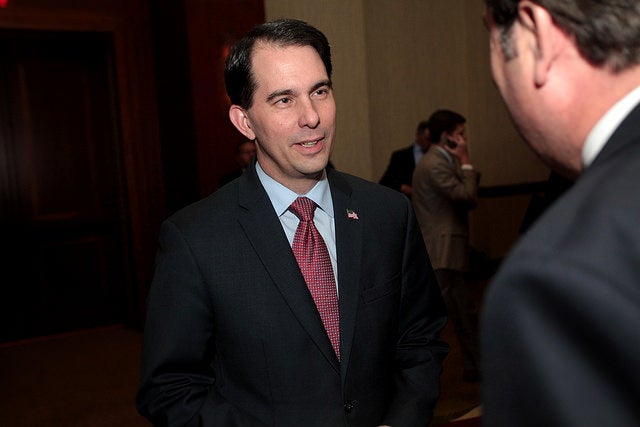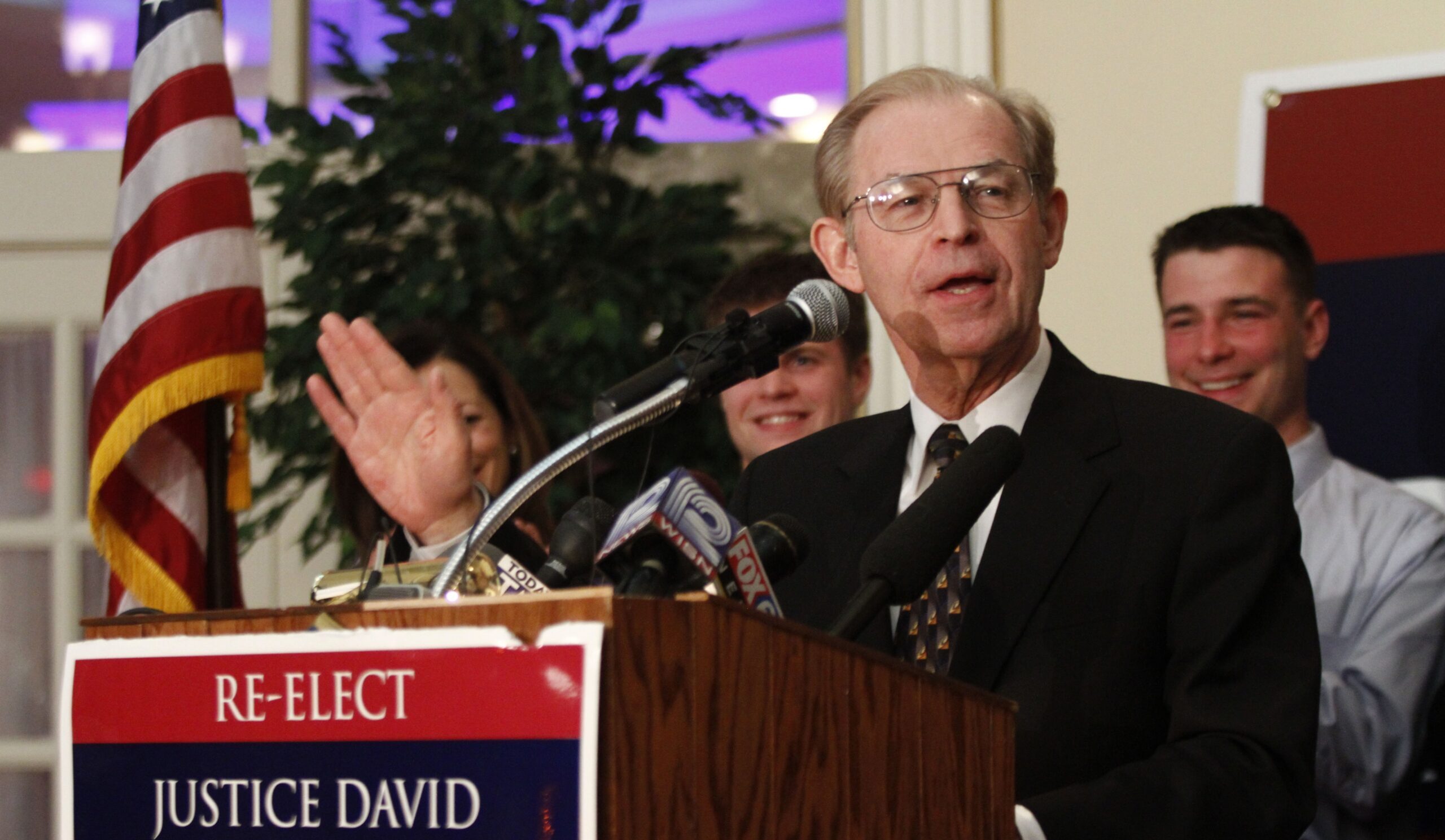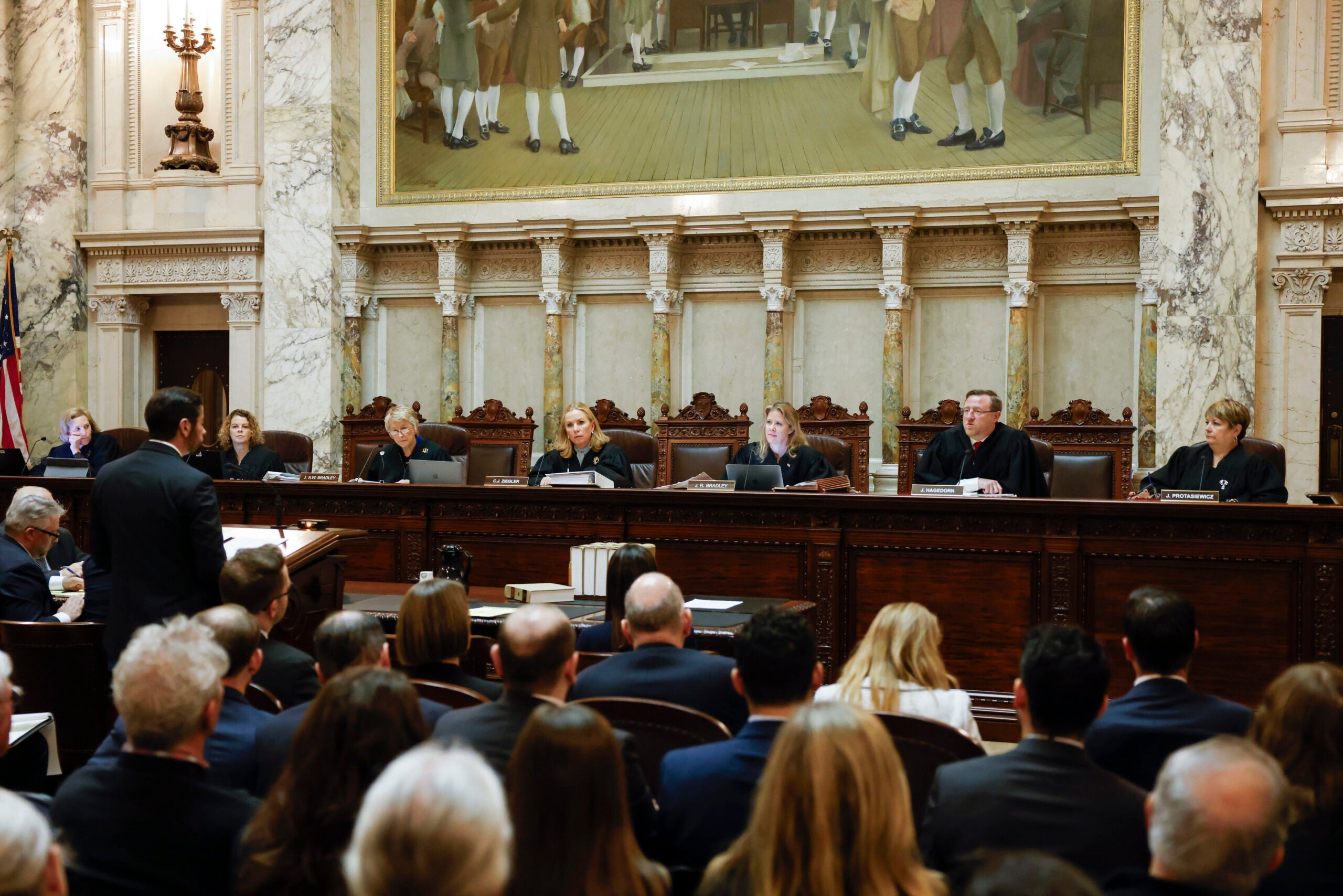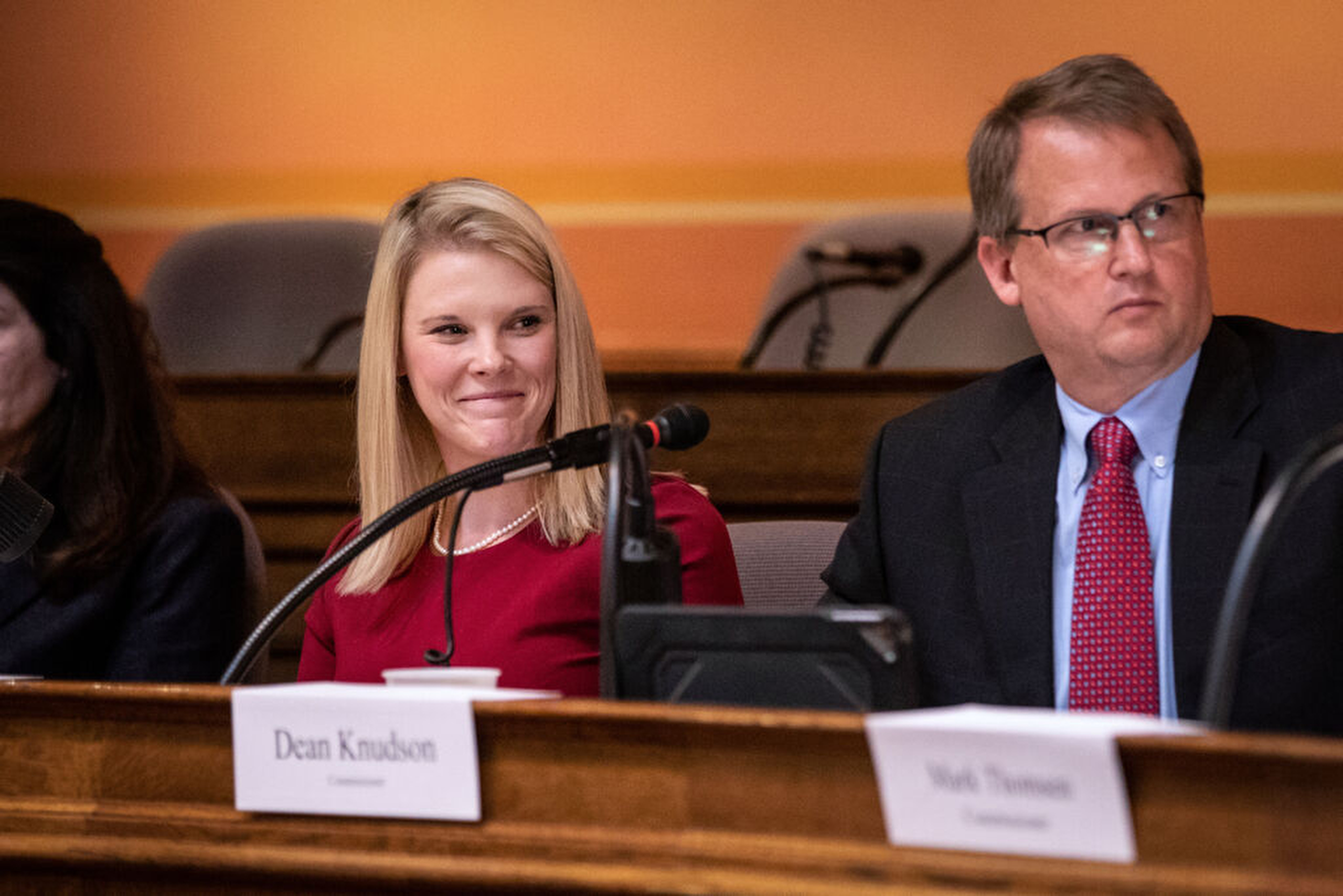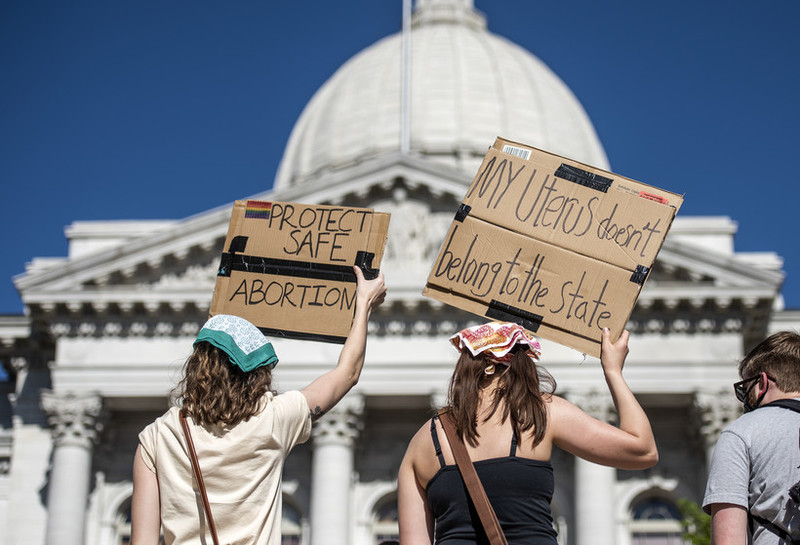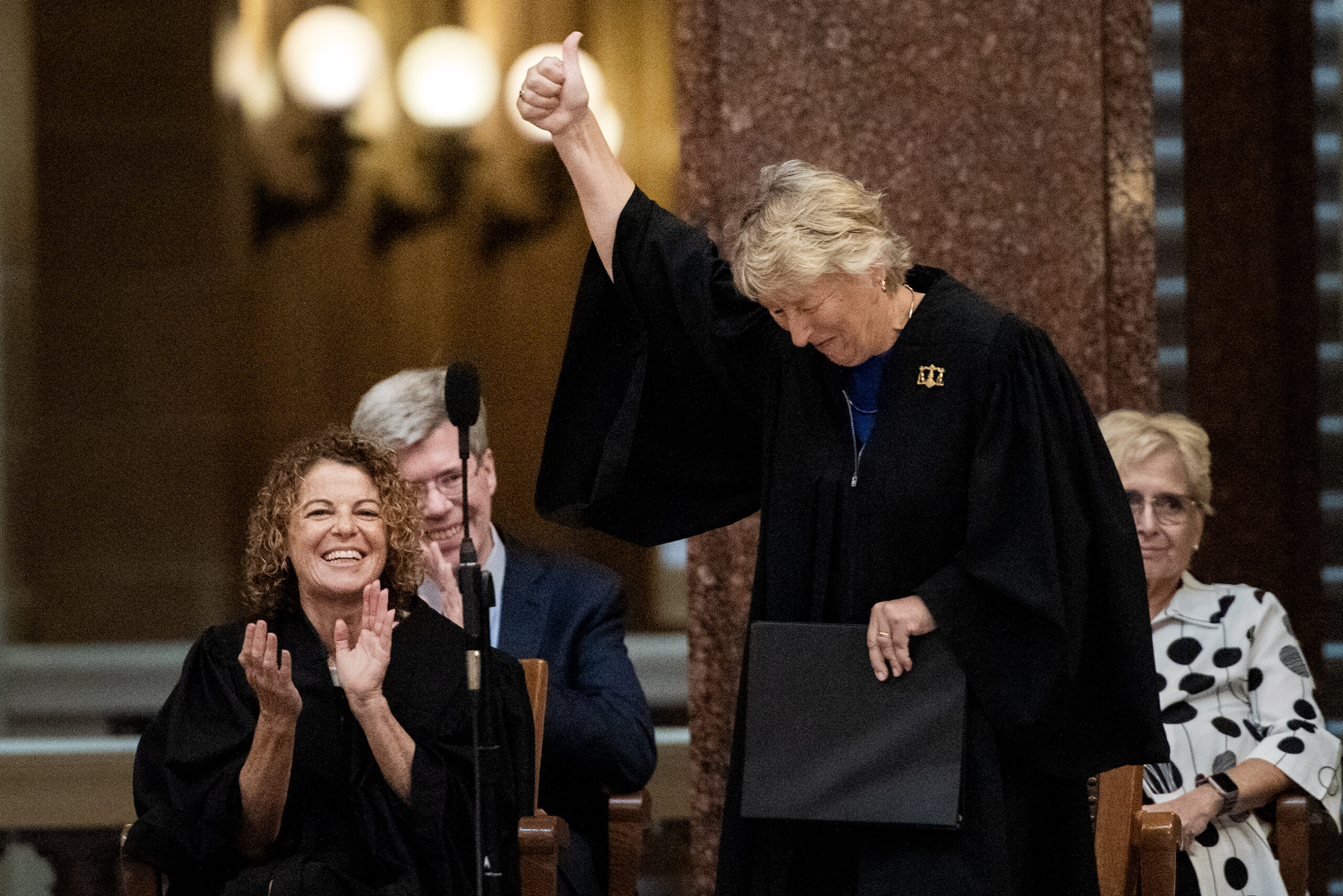Gov. Scott Walker is trying to fend off criticism from Democrats — and questions from news reporters — over anti-gay and anti-abortion writings from state Supreme Court Justice Rebecca Bradley in 1992, when she was a student at Marquette University.
Groups opposing Bradley in her April election contest against state Appeals Court Judge JoAnne Kloppenburg have been releasing copies of opinion pieces Bradley wrote for a student newspaper. In those pieces, Bradley called gay people “queers” and said that abortion is a “holocaust for our children.”
Following a bill signing in the Milwaukee County village of Brown Deer Monday, reporters asked Walker if he found Bradley’s writings about gay people offensive. The governor responded by noting Bradley has explained she no longer holds those views.
Stay informed on the latest news
Sign up for WPR’s email newsletter.
“I think my statement’s very clear,” he said. “I think it was appropriate for her to make it clear that those opinions written nearly a quarter-century ago in college do not reflect her positions in any of her judicial positions or as an attorney.”
Walker has appointed Bradley to three judgeships in recent years, including to the state’s highest court last year. He has said the controversy about Bradley’s writings isn’t about him. Wisconsin Democrats disagree: Assembly Democratic Minority Leader Peter Barca, who has called Bradley’s columns “extremely offensive and horrifying,” said Walker failed to properly vet Bradley before appointing her to the Supreme Court.
Walker, however, said his staff did not check on Bradley’s college writings for a good reason.
“I would challenge you to look back at any governor’s appointment process, and I doubt you’ll find that every writing as a student is going to be brought up under any process,” he said.
Walker said the question of whether he would have appointed Bradley to the Supreme Court had he seen her 1992 opinion pieces is irrelevant.
State Senate Minority Leader Jennifer Shilling disagreed, saying: “As elected officials, it’s our job to lead by example. Hate speech, discrimination and intolerance are never ‘irrelevant.’”
Meanwhile, Bradley also spoke individually with some news media on Tuesday, and apologized for her comments 24 years ago about gay people.
Wisconsin Public Radio, © Copyright 2024, Board of Regents of the University of Wisconsin System and Wisconsin Educational Communications Board.

